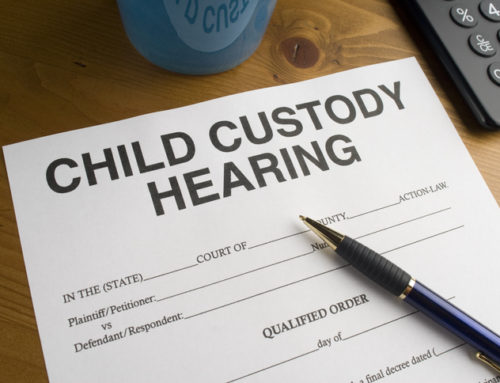Did you know that over 2 million children in the United States have no contact with their mothers because of various child custody arrangements? Sadly, this often happens when mothers don’t know their rights.
In some cases, mothers give up the custody of their children because they don’t have the support of a knowledgeable child custody lawyer or divorce attorney.
Without a proper defense, the person claiming paternity might be able to use past events to claim the mother is not a suitable caregiver.
This article will go into the basic mothers’ rights in child custody cases in Houston. That way, the next time you head to a child custody hearing, you’ll have an advantage. Keep reading to learn more.
The Role of Mothers in Child Custody Cases
Historically, divorce courts were in the habit of giving sole custody rights to the mother when a divorce occurred. Those days are long over now. The majority of states no longer presume automatic custody favoring the mother.
In Texas, the standard of the court is to award custody rights in the best interest of the child. Still, Texas has its own unique rules when it comes to mothers’ rights in a child custody case.
Mothers’ Rights in Child Custody Cases
The state of Texas observes two different standards when it comes to child custody and mothers’ rights. The rights of married mothers differ from those of unmarried mothers. Here’s how it works.
Unmarried Mothers
The laws surrounding the rights of unmarried mothers are slightly less complicated than the rights of married mothers. Under Texas law, with a legal paternity finding, an unwed mother functions as a sole conservator having sole custody of her child. She solely has the authority to make legal, medical, and educational decisions for her child. The mother has the right to determine where her child lives. The father has no legal right to visitation without establishing paternity.
The child’s father can challenge the sole custody arrangement by proving paternity. The father can do this in a few different ways. The first option is to have both parents sign an Acknowledgment of Paternity form.
Because the mother must sign the form in order for it to be valid, this may not work. Another option is for the father to file a paternity action in court. The father may need to prove paternity using a DNA test, if the mother does not agree in open court that he is the father of the child.
Are you an unmarried mother? If so, it is important that you talk to a attorney to learn whether your child’s father can establish paternity. You will want to know how this affects custody and visitation rights.
Unmarried Mothers Rights in Custody Disputes
In Texas, the rights of unmarried mothers in custody disputes are governed by specific laws and legal principles that aim to protect the best interests of the child. It’s important to understand these rights and how they impact both the mother and the child involved in such disputes.
Legal Presumptions and Maternal Rights
In Texas, when a child is born to unmarried parents, the mother is automatically presumed to have sole custody. This means that the mother has the legal right to make decisions regarding the child’s welfare, including their education, healthcare, and general upbringing, without any legal obligation to consult with the father. However, this presumption does not eliminate the father’s rights but rather sets a legal starting point for custody considerations.
Establishing Paternity
For a father to gain legal rights, including custody or visitation, paternity must be established. This can be done voluntarily through an Acknowledgment of Paternity or through a court order. Establishing paternity is a crucial step for a father to take part in custody disputes or to seek custody rights.
Custody Disputes and Best Interests of the Child
In any custody dispute in Texas, the primary consideration is the best interests of the child. The court will consider factors such as the emotional and physical needs of the child, the stability of the home environment offered by each parent, and the presence of any history of family violence or substance abuse. Unmarried mothers, like all parents, are evaluated based on their ability to provide a safe and nurturing environment for the child.
Modification of Custody
Custody arrangements are not permanent and can be modified. If circumstances change significantly, either parent can petition the court to modify the custody order. This is common when one parent’s living situation changes, or if it’s in the child’s best interest.
Visitation Rights
Even when unmarried mothers have sole custody, the biological father typically has the right to visitation unless there’s a court order stating otherwise. These visitation rights are important for maintaining the child’s relationship with both parents.
Child Support
Unmarried mothers in Texas may also be entitled to child support from the father. Child support is determined based on the non-custodial parent’s income and the needs of the child. This support is intended to cover expenses related to the child’s upbringing.
Legal Representation and Mediation
In custody disputes, legal representation is crucial. Lawyers specializing in family law can help navigate the complexities of custody laws in Texas. Additionally, mediation can be a valuable tool for unmarried parents to resolve disputes amicably and create a parenting plan that serves the best interests of the child.
Married Mothers
Texas law dictates that married couples share joint custody of their children. The law presumes a woman’s husband is the father of their children unless another man files for paternity.
As joint custodians, the mother and father have equal rights to their children and must make decisions for the children together.
In the event of a divorce, a couple is technically still married until the divorce gets finalized. In many cases this means that neither parent can make decisions for the children without the consent of the other.
Divorcing mothers need to understand that filing for divorce does not deprive a father of his parental rights. There will be legal consequences if a married mother tries to deprive a father of their rights.
In some circumstances, a judge might deem a father unfit to care for a child. In this case, the mother would become the sole custodian.
The judge may take into account the child’s needs, the abilities of each parent to provide care, and any past abuse or neglect. The judge may also consider the child’s relationship with the parents and what the child wants.
Sometimes, the court may allow the mother to file for temporary custody before the divorce is finalized. The mother can file for temporary child support as well. However, it is unlikely a judge will allow this if the parents reside together.
In the event of an abusive relationship, a mother trying to flee the situation is encouraged to seek an order of protection. If the court grants an order of protection to the mother, it will be easier for her to make decisions for the children.
The Importance of a Strong Legal Team in Child Custody Cases
Even if you have a basic understanding of child custody rights in Texas, the family court system is challenging to navigate on your own. Having a trusted family law attorney on your team offers significant advantages.
It is especially necessary to have a child custody lawyer represent you in the courtroom during a divorce or when you are attempting to gain child custody.
With a lawyer advocating on your behalf, it is much more likely you will get the outcome you desire and get it much faster. In addition, a child custody lawyer can help ensure you get the child support your child needs.
Houston Family Law Attorneys Can Help You Win Custody of Your Child
Every detail matters when it comes to protecting parental rights. When it comes to evaluating which duties, rights, and abilities the court should allocate to each parent, how these details get presented to court, matters.
The Texas courts prioritize minimizing the impact of a divorce on the children involved. Therefore, the goal is always to balance parental rights with what is in the best interest of the child.
Hiring a Houston family law attorney will ensure you and your children get the best possible outcome in a custody case.
The Right Houston Family Law Attorney for Your Child Custody Case. Call Us at (713) 903-3272
When it comes to child custody disputes, it is important to know your rights as a mother. The Alsandor Law Firm is dedicated to protecting the rights of parents while balancing the best interests of the children involved.
As a board-certified family law specialist and a former elementary school teacher, Cheryl Alsandor is in a unique position to understand the big picture when it comes to protecting children during family legal disputes.
Contact The Alsandor Law Firm today to schedule a consultation.




